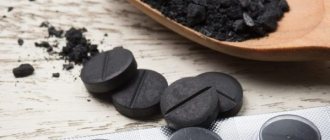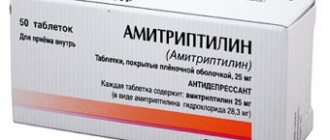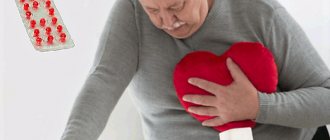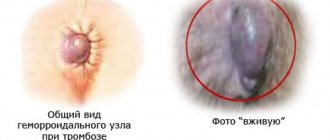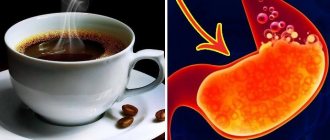Karsil for hepatitis C is prescribed to maintain normal liver function. A herbal medicine for viral inflammation prevents the appearance of fibrotic changes in the organ, reduces the degree of intoxication, and normalizes the outflow of bile. You can take Karsil only after examination and consultation with a specialist. During the course of hepatoprotector, you must adhere to a diet.
Composition, action and release form of the drug
The effectiveness of the drug "Karsil" is ensured by the main component - the natural phenol silymarin, which is isolated from the fruits of spotted milk thistle. The drug has antioxidant, antitoxic, hepatoprotective properties. "Karsil" protects liver cells from destruction by neutralizing the action of free radicals and toxic substances. The regenerating effect is manifested in stimulating the synthesis of structural elements of hepatocytes - phospholipids, due to which the cell membrane is strengthened and its permeability to toxins is reduced. The drug cleans blood vessels well in case of high cholesterol, inhibits lipid oxidation, eliminating excess fat in the bloodstream, and normalizes fat metabolism in liver tissue. Types of drug release:
- brown-coated tablets containing 35 mg of silymarin;
- gelatin capsules "Karsil Forte" 90 mg of active ingredient.
Recovery in a child
Where to start? First of all, the liver cells need to be given the opportunity to rest. The recovery process can be started using simple methods.
After antibiotic therapy is completed, it is important to restore enzyme levels. To do this, it is necessary to exclude liver cells from the digestion process as much as possible. For this to happen, there must be no toxic substances in the blood, which means you need to eat high-quality food.
Proper nutrition will not only help facilitate the digestion of food, but will also help remove all the excess that has accumulated in the body. The diet should include porridge with water, stewed or steamed vegetables. At the same time, you should limit your consumption of fats, meat and fish in any form.
Pure water and choleretic herbs are a prerequisite for liver restoration. Drinking plenty of fluids will thin the blood, and herbs will cleanse the bile ducts.
Remember, the liver is a very grateful organ. The cells of an organ are able, like puzzle pieces, to be restored to their places. If, as a result of serious damage or poisoning, at least part of it remains alive, then it will take over the work of the entire liver.
Pathologies for which Karsil will help
The tablets will help the liver cope with the negative effects of junk food.
Taking the drug significantly improves the well-being of patients with acute and chronic liver diseases and intoxications. Pain under the right rib, nausea and other unpleasant symptoms subside, appetite improves and digestion improves. List of diseases for which the hepatoprotector “Karsil” is prescribed:
- chronic hepatitis;
- cirrhosis of the liver;
- recovery from hepatitis;
- fatty inclusions in the liver tissue;
- toxic effects on the liver - poisons, drugs, alcohol, poor quality food.
To prevent organ damage, the drug “Karsil” is recommended for people who constantly work with toxic substances.
Reviews
Irina, 49 years old I have been taking Karsil to cleanse my liver for two years now. I work as a painter, so I often inhale chemical fumes that are harmful. The drug helps me restore liver function and protect its cells from toxins. I noticed that after taking the capsules, my digestion normalized, my health improved, and I stopped constantly having headaches.
Ivan, 58 years old I have a long-standing liver disease, so I have to take pills. A year ago, doctors prescribed taking Karsil for liver hepatosis. These pills are tasteless, easy to swallow and work effectively. Judging by the tests that I undergo constantly, everything is normal with me - the organ does not degenerate into fat, it works properly.
Natalia, 37 years old My husband drank a lot, was a chronic alcoholic, but managed to cope with his addiction. He no longer drinks, but is still undergoing an intensive recovery course. Now he is taking Carsil capsules for liver prevention. They contain milk thistle plant extract, which protects the organ. My husband says he feels good.
Sergey, 24 years old I suffered from pneumonia, which I was treated with antibiotics for a long time and persistently. In parallel with the treatment, I took Carsil capsules to protect the liver. If I had not done this, it would have been difficult - the organ was already suffering from a constant attack of antibacterial drugs. After being discharged from the hospital, I feel great, my liver does not hurt.
The liver is often exposed to toxic and destructive effects when taking antibiotics and other drugs, poisoning and illness. “Karsil” for the liver is a natural preparation that has antitoxic activity and protects organ cells from destruction. It is taken in long courses as a therapeutic and prophylactic agent. Used to cleanse the liver in the treatment of chronic alcoholism.
Directions for use and doses
The drug should be swallowed whole, without crushing, preferably before meals. To avoid irritation of the gastric walls, take the medication with plenty of water. For severe liver damage, 4 tablets are prescribed three times a day, and for the treatment of mild forms - 1-2 pieces. For fatty liver hepatosis, a dose of 70 mg is prescribed for 3 doses. For preventive purposes, it is recommended to take 1 tablet or capsule 2-3 times a day. The "Karsil Forte" form for medicinal purposes is dosed at 90-180 mg per day. During use, it is not recommended to exceed the maximum daily dosage of 420 mg. Treatment with Karsil lasts up to 3 months.
Cholelithiasis. Causes, stages, symptoms and treatment of gallstone disease.
Gallstone disease is a disease associated with the formation of stones in the gallbladder and bile ducts. One of the fairly common diseases of the gastrointestinal tract.
Ultrasound examination of practically healthy adults reveals gallstones in 10-15%, the frequency of which increases with age. Most gallstones are formed from cholesterol, which is deposited in oversaturated bile, especially at night, when the concentration of bile in the gallbladder is at its highest.
Between meals, bile is concentrated in the gallbladder, which acts as a reservoir for bile acids (cholic and chenodeoxycholic).
Bile acids are necessary for the emulsification of fats, for the breakdown (hydrolysate) under the influence of lipase (mainly pancreatic) into triglycerides and fatty acids, the latter are absorbed (absorbed) along with bile acids.
Black, small, dense pigmented stones account for 70% of all radiopaque gallstones.
Along with Cholesterol (single) and Pigment (purely pigmented black and brown), Mixed stones are more common.
- gender (occurs much more often in women than in men);
- dyskinesias leading to stagnation of bile;
- cholecystitis;
- obesity; nutrition (little dietary fiber);
- liver cirrhosis (30%);
- diseases of the terminal ileum (Crohn's disease, etc.);
- medications (oral contraceptives, clofibrate, etc.).
The following factors predispose to the formation of Black pigment stones, consisting predominantly of calcium bilirubinate: chronic hemolysis, liver cirrhosis, biliary tract infections (E.coli, Clostridium Sp.). Infection of bile with microorganisms producing b-glucorunidase leads to an increase in the content of poorly soluble direct unbound bilirubin in the bile.
Brown pigment stones are usually formed in most cases of sclerosing cholangitis and biliary invasions (opisthorchiasis, clonorchiasis, giardiasis, etc.).
Stones consisting of calcium carbonate and phosphorus are extremely rare.
From time to time, complaints of dyspeptic disorders may appear: slight discomfort in the right hypochondrium, heaviness after eating, bloating, flatulence, belching.
Often manifests itself primarily after childbirth, abortion, nervous outbursts. Lasts from 1 year to 10 years.
Physicochemical changes in bile occur. Bile is saturated with cholesterol, thickens, bile acids decrease, bile pigments increase, phospholipids decrease, bile becomes lithogenic, and stone formation begins.
Systematic physical activity, rational split meals, in small portions up to 5-6 times a day are required, with the exception of high-calorie and cholesterol-rich foods, especially in case of obesity or hereditary predisposition. It is necessary to exclude or limit fatty, spicy foods, marinades, and you should not overeat or go hungry. It is also necessary to treat concomitant gastrointestinal diseases.
Latent asymptomatic stone carriage.
It is characterized by the same physicochemical changes in the composition of bile as in the first stage, but with the presence of stones in the gall bladder. Stagnation of bile begins, damage to the mucous membrane increases the permeability of the bladder wall to bile acids, and inflammation.
An ultrasound examination of the gallbladder reveals signs of cholecystitis and gallstones. Lasts from 2-3 years to 5-6 years. Stones up to 0.8 cm.
Ursofalk 10 mg per 1 kg, Ursosan, Defalk 600-800 mg per 1 kg, from 6 months to 1 year.
Topical pain, biliary colic.
Acute, epigastric pain, atypical, paroxysmal. Pain throughout the entire abdominal cavity, radiating to the back, girdles, increased temperature, fever, bloating, which can lead to diarrhea after the attack calms down.
Surgery is required.
COMPLICATIONS OF GALLSTONE DISEASE.
Obstructive jaundice due to blockage of the bile duct (obliteration) by a stone, duodenostasis.
Objectively: jaundice, itching, dark urine, light feces.
Angina form of cholelithiasis. Pain like angina pectoris, retrosternal or left sternal.
After cholecystectomy, acute hemorrhagic pancreatitis, acute pancreatic necrosis, chronic recurrent pancreatitis, acute hepatic dystrophy, and hepatalgia may develop.
Empyma of the gallbladder (suppuration), perforation due to blockage of the gallbladder, biliary peritonitis (90% mortality).
Adverse reactions
When taking the drug, you may experience stomach pain.
The drug "Karsil" is low-toxic, so the occurrence of side symptoms during therapy is a rare occurrence. Negative effects go away on their own after taking several doses of the drug. If unpleasant symptoms continue to bother the patient, you should stop taking the drug and consult a doctor to replace it. Possible side effects of Karsil:
- feeling of nausea;
- stomach pain in the epigastrium;
- skin rash and itching;
- hair loss;
- stomach upset;
- exacerbation of vestibular dysfunctions.
Treatment of gastritis with high acidity
For the successful treatment of both chronic and acute gastritis (catarrh) of the stomach, various medications are used along with diet. The list of such drugs is huge and, moreover, the number of subtypes of such drugs is huge.
In general, without medications, treatment of gastric catarrh will be incomplete. This in turn can cause complications or progression of the disease. Moreover, failure to use medications for gastritis can lead to its chronicity (development of chronic gastric catarrh).
For example, drug treatment of erosive gastritis is mandatory, since in its absence massive bleeding is possible, which in some cases can lead to death. It is also important to use medications for autoimmune catarrh.
Medicines are also used after successful completion of therapy for catarrh, as a prevention of possible relapse.
Prevention, as a rule, is much more gentle than basic therapy and requires taking 1-2 types of medications.
Who prescribes drug treatment for gastritis?
If a diagnosis of gastric catarrh is suspected or confirmed, the only person who can prescribe treatment is a doctor.
Self-prescribing medications to treat such a serious disease can lead to serious complications. In some cases, self-medication even leads to death, especially when it comes to infectious or purulent catarrh of the stomach.
Adsorbents
Antacids
How to treat gastritis? What to drink for stomach pain? Should we seriously consider treatment with folk remedies for this disease and will it be effective? Or is it better to resort to treating gastritis with high acidity with medications? Next, we will try to answer these and other questions related to how to treat gastritis of the stomach and what medications to choose for this.
First, let's answer the question: can gastritis be treated in principle or will this disease continue to haunt a person throughout his life? Modern medicine does not stand still, so people living in our fast-moving times have fared much better than those, for example, who were born half a century ago.
Doctors believe that gastritis is treatable, but there are a few important conditions. Firstly, the success of therapy is influenced by the patient’s age, as we know that a young, strong body can cope with many ailments, unlike older people.
And secondly, the type or type of gastritis, as well as the degree of its neglect (i.e., the extent of damage to the gastric mucosa by the disease), is considered an important factor. Unfortunately, people are often more interested in how to cure gastritis at home and are in no hurry to consult a doctor.
He will note that in some cases, traditional medicine can actually help relieve the symptoms of an exacerbation of the disease. However, do not forget that this gives only a short-term effect. After all, alleviating symptoms does not mean defeating the disease.
Treating an exacerbation at home is, as people say, a “double-edged sword.” On the one hand, a person becomes better, but on the other, a colossal loss of time occurs. Remember that the sooner you contact a specialist, the more likely it is that the doctor will make the correct diagnosis and select the appropriate treatment regimen that will help cure gastritis.
So, we answered the question of whether chronic gastritis or other types of disease can be cured. Now let's move on to considering effective therapeutic methods for this disease.
Today, medicine classifies almost ten different types of gastritis, and each of them is divided into several stages and forms of development. This is not easy, because in order to effectively treat any disease, you must first assess the condition of the organ or system as deeply as possible, establish the correct diagnosis so that the treatment does not turn out to be erroneous or inadequate.
Knowing the exact clinical picture of the patient’s stomach condition, the type, stage, form of gastritis, the treatment will be determined by the doctor based on these detailed data for each specific patient:
- Gastritis is treated by a gastroenterologist.
- Before treatment, the doctor must carefully examine the patient’s medical history, his general health, concomitant diseases, including the gastrointestinal tract, in order to clarify possible contraindications for taking certain medications.
- According to FGSD, the doctor determines the type, stage and form of gastritis, the acidity of gastric juice and finds out the causes of the disease.
- The effectiveness of treating gastritis with high acidity depends on the severity of the inflammatory process, its type and on the discipline and responsibility of the patient himself, since with any treatment, medication, folk remedies - without following a diet and eradicating bad habits, it is impossible to cure gastritis.
Today, when selecting therapy, gastroenterologists rely not on the acidity of the stomach, but on the condition of the mucous membrane according to FGDS. In case of acute gastritis, symptomatic therapy is first prescribed, since at the beginning it is necessary to reduce pain and reduce inflammation, and this is possible by reducing the production of hydrochloric acid, that is, with the help of drugs that neutralize acidity, and of course, following a diet.
special instructions
It should be taken into account that the drug "Karsil" reduces the effectiveness of hormonal contraception and replacement therapy drugs. On the contrary, the effect of the drugs “Diazepam”, “Ketoconazole”, “Vinblastine” is enhanced. The drug contains wheat starch, so it cannot be used for celiac disease, and the glycerol in the composition can irritate the stomach or cause headaches.
When taken regularly, the drug "Karsil" can begin to act like estrogens, aggravating the condition of patients with tumors caused by hormonal imbalances.
Use by pregnant and lactating women
During the period of bearing a child, Karsil can be taken only in cases of extreme necessity. During treatment, a pregnant woman should be under the supervision of doctors, reporting her condition during therapy. Nursing mothers should not use the medicine. If the drug cannot be avoided, the child will be switched to artificial feeding while taking it.
Side effects
As a rule, the drug is very well tolerated. However, sometimes side effects may occur, which are expressed in conditions such as:
- Diarrhea, nausea, constipation, vomiting, dyspepsia, abdominal pain;
- Alopecia, rash, Quincke's edema, itching, increased appetite;
- Increased vestibulatory disorders.
The fetus may experience an increase in body weight. After discontinuation of the drug, all side effects disappear.
Overdose
No serious consequences of an overdose of Karsil have been recorded in medical practice. The herbal medicine has a minimal list of contraindications, but with increased sensitivity to the plant extract from its composition, it can provoke allergic manifestations. Silymarin intolerance may be a consequence of regular overdoses. In some cases, violation of the dosage regimen leads to deviations in the functioning of the digestive system.
Side effects of overdose include alopecia (manifests with varying degrees of intensity).
Contraindications
This medicine is not recommended for use in the presence of conditions such as:
- Allergy to components included in the product;
- Celiac disease;
- Lactose deficiency, galactosemia, glucose or galactose malabsorption syndrome.
In addition, the drug Karsil is not recommended for use in children under 12 years of age.
With caution, this drug can be prescribed for endometriosis, uterine fibroids, carcinoma of the mammary glands and prostate gland. Treatment with Karsil in these cases should only be carried out under the close supervision of a doctor.
Pregnancy period
During pregnancy, you should avoid taking Karsil. This is due to the fact that the drug can have a negative effect on the fetus. If there is an urgent need for the product, and it is not possible to replace it with an analogue, then use is allowed, but the pregnant woman must always be under the supervision of a doctor.
It is also not recommended to take Karsil while breastfeeding. In this case, it is better to choose a safe analogue.
Vacation and storage conditions
"Karsil" can be purchased at a pharmacy without a prescription.
You do not need a prescription to purchase the drug at the pharmacy, but before you start taking the medicine, it is better to consult your doctor. Tablets and capsules should be stored in places free from moisture and direct sunlight, with a temperature of no more than 25 °C. The drug can be used for 2 years from the date of production.
Similar means
The doctor may decide to change the drug if the medication is intolerant, severe side effects occur and the patient does not improve during treatment. The pharmaceutical industry offers the following structural and functional analogues of Karsila:
- "Silymarin";
- "Silimar";
- "Legalon";
- "Hepatrin";
- "Essentiale forte";
- "Phosphogliv";
- "Antral".
The listed drugs have a similar hepatoprotective mechanism of action and can replace or complement each other. Some drugs have a choleretic effect, for example “Liv 52”, “Hofitol”. "Essentiale Forte" is not prohibited for pregnant women, but on the contrary helps to alleviate toxicosis. The drug "Gepatrin" is supplemented with vitamins E and B.
Pharmacological effects
The medicine acts as a hepatoprotector. The mechanism of action of the drug has not been thoroughly studied. Experts have found that hepatoprotectors interact competitively with toxic substances. The medication affects the course of metabolism and other processes due to the suppression of the pentalipoxygenase pathway, which binds to free radicals. The drug helps accelerate regeneration processes by stimulating protein synthesis in damaged hepatocyte cells.
Taking Karsila is appropriate for toxic liver damage, cirrhosis, and hepatitis.
Return to contents


